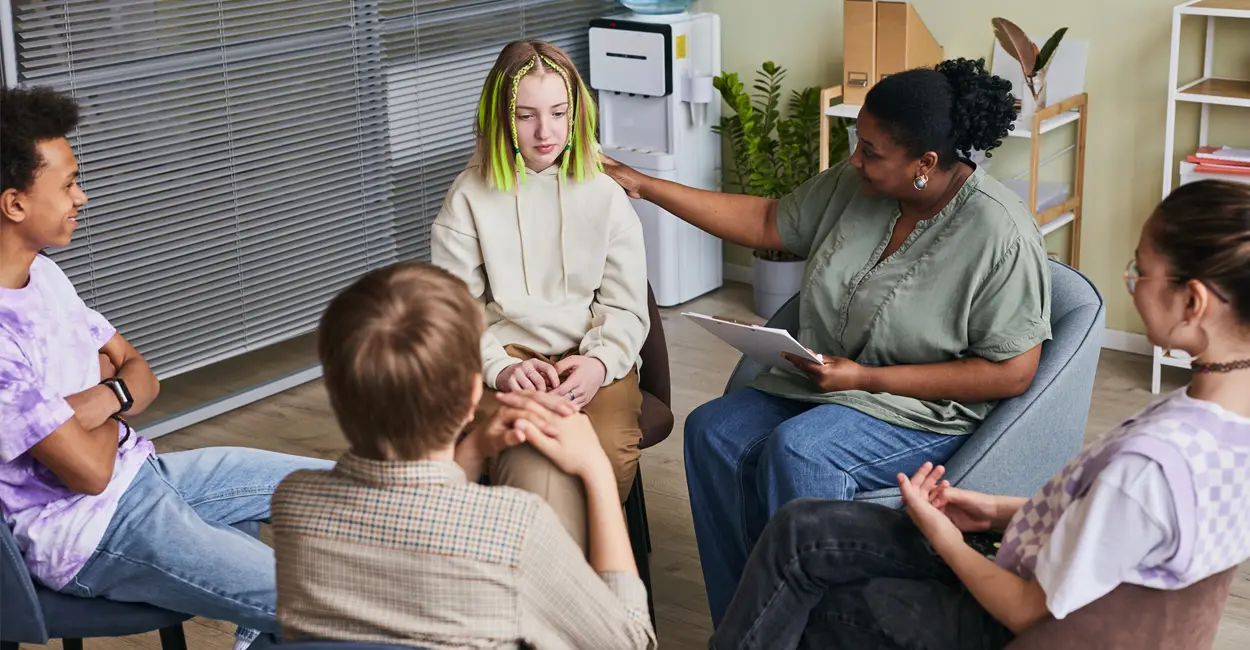24/7 Helpline:
(866) 899-221924/7 Helpline:
(866) 899-2219
Learn more about PTSD Treatment centers in Chaffee County

Other Insurance Options

Premera

Choice Care Network

AllWell

MHNNet Behavioral Health

Covered California

CareFirst

Sutter

PHCS Network

CareSource

Excellus

Holman Group

Amerigroup

WellPoint

Sliding scale payment assistance

UMR

Health Partners

UnitedHealth Group

Medical Mutual of Ohio

GEHA

Self-pay options

Eagles Nest Clubhouse – Rockbridge Area
Eagles Nest Clubhouse – Rockbridge Area is a public rehab located in Buena Vista, Virginia. Eagles N...













West Central Mental Health Center
West Central Mental Health Center is a private rehab located in Buena Vista, Colorado. West Central ...













































